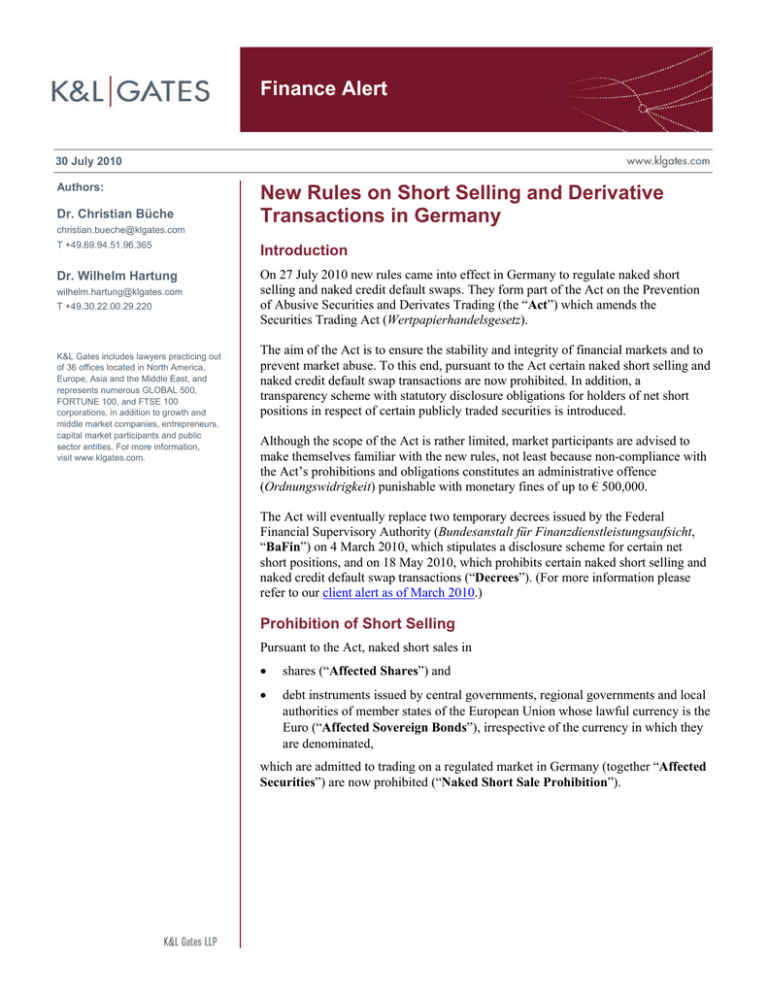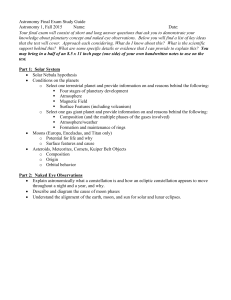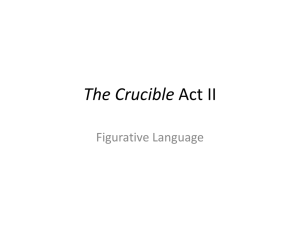
Finance Alert
30 July 2010
Authors:
Dr. Christian Büche
New Rules on Short Selling and Derivative
Transactions in Germany
christian.bueche@klgates.com
T +49.69.94.51.96.365
Introduction
Dr. Wilhelm Hartung
On 27 July 2010 new rules came into effect in Germany to regulate naked short
selling and naked credit default swaps. They form part of the Act on the Prevention
of Abusive Securities and Derivates Trading (the “Act”) which amends the
Securities Trading Act (Wertpapierhandelsgesetz).
wilhelm.hartung@klgates.com
T +49.30.22.00.29.220
K&L Gates includes lawyers practicing out
of 36 offices located in North America,
Europe, Asia and the Middle East, and
represents numerous GLOBAL 500,
FORTUNE 100, and FTSE 100
corporations, in addition to growth and
middle market companies, entrepreneurs,
capital market participants and public
sector entities. For more information,
visit www.klgates.com.
The aim of the Act is to ensure the stability and integrity of financial markets and to
prevent market abuse. To this end, pursuant to the Act certain naked short selling and
naked credit default swap transactions are now prohibited. In addition, a
transparency scheme with statutory disclosure obligations for holders of net short
positions in respect of certain publicly traded securities is introduced.
Although the scope of the Act is rather limited, market participants are advised to
make themselves familiar with the new rules, not least because non-compliance with
the Act’s prohibitions and obligations constitutes an administrative offence
(Ordnungswidrigkeit) punishable with monetary fines of up to € 500,000.
The Act will eventually replace two temporary decrees issued by the Federal
Financial Supervisory Authority (Bundesanstalt für Finanzdienstleistungsaufsicht,
“BaFin”) on 4 March 2010, which stipulates a disclosure scheme for certain net
short positions, and on 18 May 2010, which prohibits certain naked short selling and
naked credit default swap transactions (“Decrees”). (For more information please
refer to our client alert as of March 2010.)
Prohibition of Short Selling
Pursuant to the Act, naked short sales in
•
shares (“Affected Shares”) and
•
debt instruments issued by central governments, regional governments and local
authorities of member states of the European Union whose lawful currency is the
Euro (“Affected Sovereign Bonds”), irrespective of the currency in which they
are denominated,
which are admitted to trading on a regulated market in Germany (together “Affected
Securities”) are now prohibited (“Naked Short Sale Prohibition”).
Finance Alert
A “naked short sale” is defined in the Act as a sale
of Affected Securities (i) that are not all owned by
the seller and (ii) in respect of which the seller does
not own an unconditionally enforceable claim for the
transfer of a corresponding number of shares of the
same class, each by the end of the trading day on
which the naked short sale is effected. Therefore,
naked short sales effected intra-day remain
permissible. It is thereby understood that market
participants must not use time shifts between
different time zones to extend a trading day by
several hours. Respective attempts will be stopped
by the BaFin. It is further made clear that multiple
sales of the same Affected Securities are also not
permissible.
However, in terms of Affected Securities the scope
of the Naked Short Sale Prohibition is rather limited.
Instruments that are merely included (einbezogen) in
trading on a regulated market in Germany by
application of a trading participant or ex officio, or
are traded on the unregulated markets such as the
Freiverkehr or over-the-counter do not fall into the
scope of the Naked Short Sale Prohibition. Thus, in
practice, only the shares of issuers with their seat in
Germany and debt instruments issued by Germany
and Austria will constitute Affected Securities.
Shares of issuers with their seat outside Germany are
expressly exempted from the Naked Short Sale
Prohibition, unless they are exclusively admitted to
trading on a regulated market in Germany. It is
important to note that this limitation does not mean
that the Naked Short Sale Prohibition is limited to
naked short sales effected in Germany or by
residents of Germany. As far as Affected Securities
are concerned, it applies worldwide and will
constitute an administrative offence in Germany.
Further exemptions exist for particular registered
service providers in securities
(Wertpapierdienstleistungsunternehmen) such as
market makers, lead brokers and other liquidity
providers. For market makers, naked short sales are
a crucial instrument to be able to offer to their
clients Affected Securities and thus ensure sufficient
liquidity in the markets. The exemption may only be
relied upon to the extent that a naked short sale is
necessary to perform the services permitted by the
Act. In any case, the BaFin must be notified prior to
the commencement of performing such services. In a
press release published on 27 July 2010, the BaFin
announced that details for the required notification
will be set out in a regulation which shall be
published shortly. Until then, market makers and
other liquidity providers are required to use the
forms published on the BaFin website
(www.bafin.de) and fax them to the following
number: +49 228 4108-3479. At the end of each
quarter, further notifications will be required which
set out any changes in respect of previous
notifications. If there are no changes, notification is
still necessary confirming the scope previously
notified. Fixed-price transactions
(Festpreisgeschäfte) such as forward-rate contracts
or futures are also exempt from the Naked Short
Sale Prohibition.
The Federal Ministry of Finance is authorized to
exempt certain further transactions from the Naked
Short Sale Prohibition.
Market participants not complying with the Naked
Short Sale Prohibition may be fined with monetary
fines of up to € 500,000, yet the validity and
enforceability of the naked short sale in Germany is
left unaffected.
The Naked Short Sale Prohibition will not have
retroactive effect, unless the naked short sales in
question were prohibited by the Decree of 18 May
2010 at the time when entered into. Thus, market
participants are under no obligation to liquidate any
such lawfully acquired naked short selling position
to ensure with the Naked Short Sale Prohibition.
Disclosure Obligations
In addition to the Naked Short Sale Prohibition, the
Act implements a two-tier transparency regime with
disclosure obligations for holders of net short
positions in shares of issuers that are admitted to
trading on a regulated market in Germany
(“Disclosure Obligations”). It thereby follows the
recommendations by the Committee of European
Securities Regulators (CESR) for a pan-European
disclosure regime published in March 2010. In
particular, transactions in Affected Shares of, and
derivative instruments in respect of Affected Shares
in, foreign companies that are exclusively admitted
to trading in Germany - and thus do not fall within
the scope of the Naked Short Sale Prohibition - may
have to be disclosed by their holders.
30 July 2010
2
Finance Alert
Market participants are required to comply with the
Disclosure Obligations if their relevant net short
positions reach, exceed or fall below certain
thresholds.
If they reach, exceed or fall below 0.2 percent of the
total number of shares of an issuer (“Total Issued
Shares”) BaFin has to be notified thereof.
If a net short position reaches, exceeds or falls below
a threshold of 0.5 percent of the Total Issued Shares
of an issuer, the holder is required to also publish its
net short position in the electronic Federal Gazette
(elektronischer Bundesanzeiger). In this, the Act
goes beyond the recommendations by CESR and the
previous practice of the BaFin under the Decree of 4
March 2010, pursuant to which publications are
made anonymously.
Furthermore, in each case that a net short position
reaches, exceeds or falls below any of the thresholds
of 0.2 percent or 0.5 percent or steps of 0.1 percent
or multiples thereof of the Total Issued Shares,
further disclosures and/or publications are required.
If within one trading day the net short positions
temporarily reach, exceed or fall below the relevant
thresholds, or affect more than one threshold,
additional disclosure is not required.
For the purpose of determining the Total Issued
Shares, only the shares actually issued by the issuer
may be taken into account. Notably, shares that will
be issued in the future by virtue of an exercise of
rights under convertible bonds may not be
considered in the calculation of the Total Issued
Shares.
In order to determine whether a market participant
holds a net short position he will be required to net
his long and short interests in the Affected Shares of
an issuer, which must be determined economically.
Thus, in particular instruments such as futures,
equity swaps, contracts for difference, spread bets
and options have to be considered. Beyond that,
economic interests held as part of baskets, indices or
exchange traded funds need to be included in the
calculation. While short sales in Affected Shares
themselves will be accounted for according to their
notional value, derivative instruments will only be
accounted for according to their delta-adjusted
value. This will take into account various factors
such as the volatility of the underlying and the term
of the Affected Security.
In contrast to other disclosure obligations provided
for in the Securities Trading Act, long and short
positions must not be consolidated within a group.
Instead, they must be determined on an individual
level for each legal person, entity or fund. While in
its recommendations CESR acknowledges that
under certain circumstances it may be necessary to
net off interests in an issuer at different
organizational levels and the explanatory
memorandum to the Act is not clear in this respect,
the Act itself does not explicitly provide for such an
exemption. Market participants are advised to seek
legal advice, if net short positions should affect the
relevant thresholds within their group.
The new transparency regime will not come into
effect until 26 March 2012. Thus, for the time
being, there is no need for immediate action on the
part of holders of net short positions. The rather
long transitional period is intended to give holders
of net short positions sufficient time to adopt the
necessary compliance systems and procedures.
However, once they come into effect, market
participants must comply with Disclosure
Obligations on the following trading day the latest
even if net short positions were created prior to that
date
Failure to comply with the Disclosure Obligations
may result in monetary fines of up to € 200,000.
Until the Decree of 4 March 2010 expires on 31
January 2011, 12 p.m. is revoked prior to that date,
market participants will be required to continue to
comply with the disclosure obligations as set out
therein. Under the Decree, net short positions in ten
specific financial institutions – Aareal Bank AG,
Allianz SE, Generali Deutschland Holding AG,
Commerzbank AG, Deutsche Bank AG, Deutsche
Börse AG, Deutsche Postbank AG, Hannover
Rückversicherung AG, MLP AG and Münchener
Rückversicherungs-Gesellschaft AG – must be
declared to the BaFin and will be published if any of
the thresholds of 0.5 percent or above of the Total
Issued Shares is affected. Market participants are
required to use for their notifications a form
30 July 2010
3
Finance Alert
available on the homepage of the BaFin and fax it to
its attention to +49 228 4108-1717.
Prohibition to enter into Credit Default
Swaps
Finally, the Act prohibits (“CDS-Prohibition”)
entering into and acceding to or assuming certain
uncovered credit default swaps linked to reference
obligations of central governments, regional
governments and regional authorities of European
Union member states whose currency is the Euro
(“Affected Credit Default Swaps”).
The CDS-Prohibition also applies to Affected Credit
Default Swaps that are embedded in credit linked
notes or total return swaps, and irrespective of the
agreed method of settlement, whether physical or
cash.
Unlike the Short Sale Prohibition, the scope of the
CDS-Prohibition is not limited to instruments which
are admitted to trading on a regulated market in
Germany. Rather, it extends to all Affected Credit
Default Swaps entered into or traded in Germany.
However, similarly to the Naked Short Sale
Prohibition the scope of the CDS-Prohibition still
remains rather limited. Reportedly, only 1.5 percent
of the Affected Credit Default Swaps worldwide are
actually entered into or traded in Germany. The
focus in Europe is clearly in the UK, in London –
where the CDS-Prohibition obviously does not
apply. Also, issuers of Affected Shares remain
unprotected.
According to the Act, protection buyers may claim
an exemption from the CDS-Prohibition where they
actually require protection to significantly reduce
their risks resulting either from an existing position
in a reference obligation named above, or resulting
from another existing position in a financial
instrument, or in another existing obligation which
would decrease in value if the financial standing of
the debtor of the reference obligation named above
deteriorates.
For market makers and other liquidity providers
similar exemptions apply as under the Naked Short
Sale Prohibition. Also, the Federal Ministry of
Finance is authorized to suspend the CDSProhibition on certain transactions by decree.
Market participants not complying with the Credit
Default Prohibition may receive monetary fines of
up to € 500,000. Similar to the Short Sale
Prohibition, violations of the CDS-Prohibition will
not render the Affected Credit Default Swaps
invalid or unenforceable.
Additional Powers of the BaFin
The Federal Ministry of Finance may adopt
additional temporary measures in the event of
further threats to the stability of the financial
markets. Particularly, it may prohibit derivate
transactions in Affected Securities or in currency
derivatives whose underlying is a currency, indices
of a currency or other derivates relating to
currencies. Also, it may suspend the trading of
certain financial instruments and order persons
trading in financial instruments to inform the BaFin
of their positions and to publish them. Its measures
are limited to 12 months and may be extended once
by another 12 months. Any further extensions will
only be permissible if adopted by the Parliament in
Germany.
Outlook
The Act has been heavily criticized. In particular, it
has been argued that naked short selling and naked
credit default swaps can only be regulated
effectively on a pan-European level. In fact, the
limited scope of the provisions and obligations
implemented by the Act reveals that the objectives
of the Act will be rather difficult to achieve by the
new rules adopted in Germany alone.
However, legislative action is expected to be taken
shortly within the European Union. With Germany
and France leading the way, the European
Commission has recently completed public
consultations with a view to implement rules on
naked short selling and naked credit default swaps.
The short time line for responses indicates the
political urgency with which the legislative process
is conducted by the European Commission. The
responses received by the European Commission
are currently being evaluated.
30 July 2010
4
Finance Alert
Anchorage Austin Beijing Berlin Boston Charlotte Chicago Dallas Dubai Fort Worth Frankfurt Harrisburg Hong Kong London
Los Angeles Miami Moscow Newark New York Orange County Palo Alto Paris Pittsburgh Portland Raleigh Research Triangle Park
San Diego San Francisco Seattle Shanghai Singapore Spokane/Coeur d’Alene Taipei Tokyo Warsaw
Washington, D.C.
K&L Gates includes lawyers practicing out of 36 offices located in North America, Europe, Asia and the Middle East, and represents numerous
GLOBAL 500, FORTUNE 100, and FTSE 100 corporations, in addition to growth and middle market companies, entrepreneurs, capital market
participants and public sector entities. For more information, visit www.klgates.com.
K&L Gates comprises multiple affiliated entities: a limited liability partnership with the full name K&L Gates LLP qualified in Delaware and
maintaining offices throughout the United States, in Berlin and Frankfurt, Germany, in Beijing (K&L Gates LLP Beijing Representative Office), in
Dubai, U.A.E., in Shanghai (K&L Gates LLP Shanghai Representative Office), in Tokyo, and in Singapore; a limited liability partnership (also named
K&L Gates LLP) incorporated in England and maintaining offices in London and Paris; a Taiwan general partnership (K&L Gates) maintaining an
office in Taipei; a Hong Kong general partnership (K&L Gates, Solicitors) maintaining an office in Hong Kong; a Polish limited partnership (K&L
Gates Jamka sp.k.) maintaining an office in Warsaw; and a Delaware limited liability company (K&L Gates Holdings, LLC) maintaining an office in
Moscow. K&L Gates maintains appropriate registrations in the jurisdictions in which its offices are located. A list of the partners or members in each
entity is available for inspection at any K&L Gates office.
This publication is for informational purposes and does not contain or convey legal advice. The information herein should not be used or relied upon
in regard to any particular facts or circumstances without first consulting a lawyer.
©2010 K&L Gates LLP. All Rights Reserved.
30 July 2010
5



